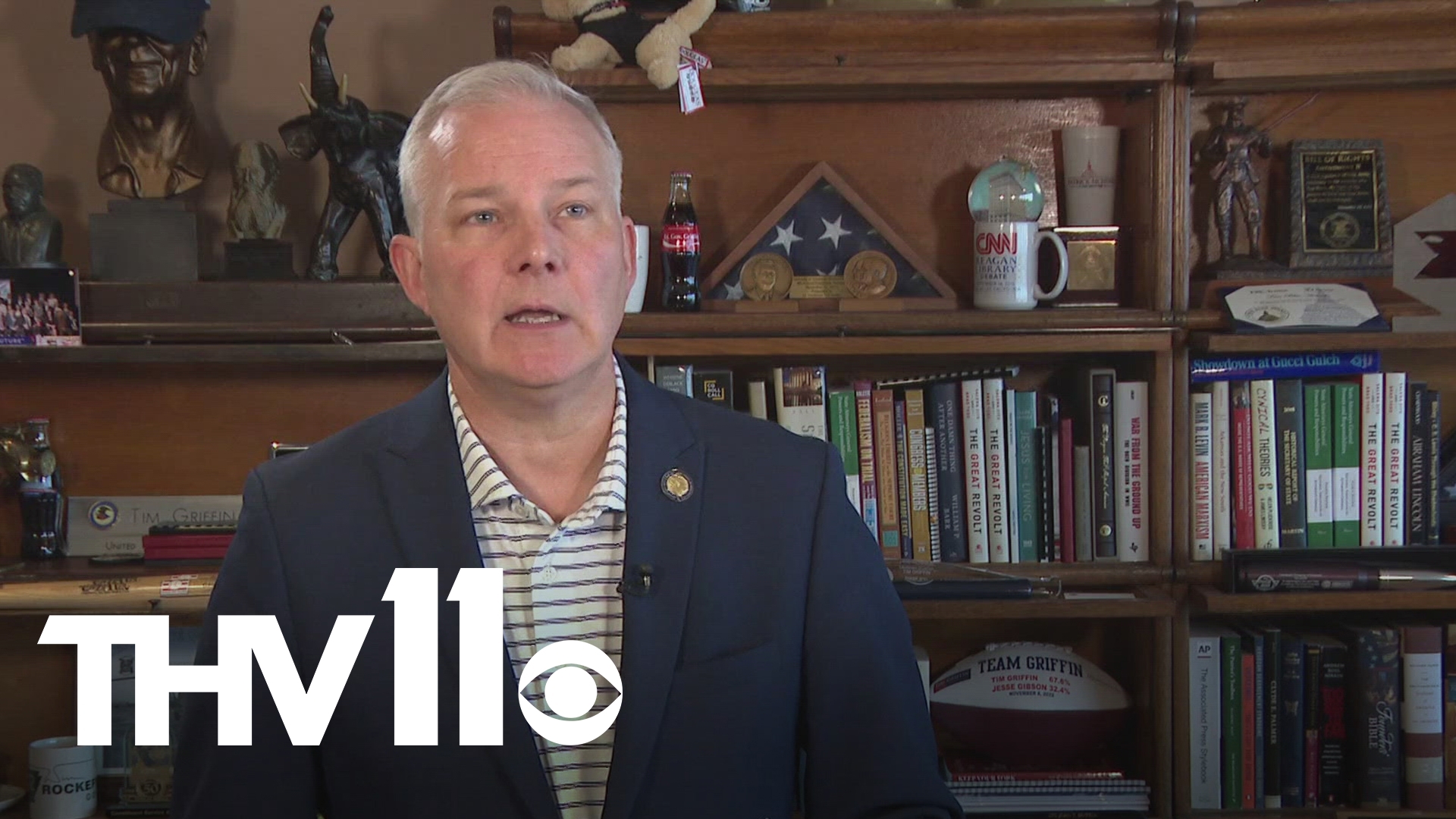LITTLE ROCK, Ark. — Arkansas Attorney General Tim Griffin has spent his first 20 months in office focused on generational crimes and constitutional conflicts.
Now, his office is suing the biggest companies in Silicon Valley and trying to extract settlements from "Big Pharma" firms over the fentanyl crisis.
Almost monthly, like clockwork, Griffin's communications team will send out a news release highlighting an arrest or conviction on a much smaller scale: Medicaid fraud.
"Deception, lying, stealing, fraud," said Griffin, a Republican, describing the common foundation of people taking advantage of the federally-funded, state-managed health insurance program.
"We all pay our taxes and we all fund this, and money at the federal level and many other levels of government around the country is certainly tight. This is our money," he said during an interview.
Protecting that money falls to a dedicated Medicaid Fraud Control Unit (MFCU).
It has specialized investigator Greg McKay, who has experience in law enforcement and accounting. He works with Deputy Attorney General Tammera Harrelson and senior assistant Leigh Patterson.
According to a federal watchdog group, the MFCU drew praise earlier this year for the 13 cases it prosecuted in 2023, making it among the most prolific in the country.
"If a criminal is telling Medicaid that they're taking care of somebody, and Medicaid believes they need that care, and that person is either getting third-rate care, insufficient care, or not care, that's a victim," said Griffin.
The cases often seem to have been hatched in a home-care setting, like Najee and Mary Rhodes, a granddaughter who was caught lying about providing care to her grandmother and then splitting the cash with her.
"People don't feel like anyone will ever know, so it's sort of done away from the public eye," explained Griffin,
However, the other extreme finds instances where fraud sums up other alleged misdeeds, including the investigation into psychiatrist Doctor Brian Hyatt.
The former chair of the state medical board is accused of systematically admitting mental patients and holding them against their will in order to run up charges to Medicaid.
He faces more than 150 civil lawsuits, but the two counts of Medicaid fraud brought by Griffin's team pose the biggest criminal jeopardy.
Dr. Hyatt has pleaded not guilty, with lawyers earlier this year blaming the complicated billing system within the program for what it calls misunderstandings about who and how they were charged.
A trial is set to play out in April in Pulaski County, but Griffin is proud of what bringing the charges has accomplished already with the hospitals Hyatt worked for.
"They don't want to be associated with someone who's thieving and stealing, to put it bluntly," said Griffin. "That's not who you want to associate with because that's going to drag your institution down."
Attorney General Griffin also shared information with us regarding a far less sensational case.
"This is an individual who was a dental assistant and they submitted Medicaid services time sheets to be paid for service support in the community," he said. "It's worth about 18 grand."
In that case, Victoria Smith-Williams had been arrested and then freed on a $10,000 bond with an arraignment hearing set for December 10th. If convicted of the class-B felony, she faces between five to 20 years in prison and a fine of up to $15,000.
"I want to ask them, was it worth 18 grand," said Griffin. "If I were those criminals, listening to this, and you've been thieving and stealing, or you're thinking about it, I'd stop it. Because we're gonna get you."

